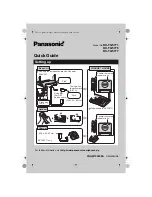
Issue 3.0
UNIVERGE SV8100
2 - 10
Features
Answer Key
Multiline terminals have an Answer Key with an LED that flashes when the multiline
terminal user receives an incoming CO/PBX, Tie/DID transfer, or CO/PBX transfer
call. When multiple calls are received, the Answer Key is used to pick up calls and
continues flashing until the last unanswered call is answered. Press the Answer Key
during a call to hold the current call and allow the next call to be answered.
Attendant Call Queuing
Attendant extensions can have up to 32 incoming calls queued before additional
callers hear busy tone. This helps minimize call congestion in systems that use the
attendant as the overflow destination for unanswered calls. For example, you can
program Direct Inward Lines and Voice Mail calls to route to the attendant when their
primary destination is busy. With Attendant Call Queuing, these unanswered calls
would normally “stack up” for the attendant until they can be processed.
The 32 call queue total includes Intercom, DISA, DID, DIL, tie line and transferred
calls. If the attendant does not have an appearance for the queued call, it waits in line
to be answered. If the attendant has more than 32 calls queued, an extension can
Transfer a call to the attendant only if they have Busy Transfer enabled.
Attendant Call Queuing is a permanent, non-programmable system feature.
Automatic Call Distribution (ACD)
Automatic Call Distribution (ACD) uniformly distributes calls among agents of a
programmed ACD Group. When a call rings into an ACD Group, the system
automatically routes the call to the agent that has been idle the longest. Automatic
Call Distribution (ACD) is much more sophisticated and comprehensive than
Department Calling and other group services – it can accurately judge the work load
at each agent and distribute calls accordingly. The system allows up to 64 ACD
Groups and 256 ACD agents.
You can put any agent in any group. An agent can be in more than one group only
when using AICs. This allows, for example, a Technical Service representative to
answer customer service calls at lunch time when many of the Customer Service
representatives are unavailable.
The ACD Master Number is the extension number of the whole group. Calls directly
ringing or transferred to the ACD Master number enter the group and are routed
accordingly. Although the master number can be any valid extension number, you
should choose a number that is out of the normal extension range.
Automatic Release
Automatic Release drops the line circuit when an outside party abandons the call.
For this feature to work with Loop Start Trunks, the CO/PBX providing the outside line
must provide a timed disconnect signal. Automatic Release is normally provided on
Ground Start, DID, ISDN, and Tie Line trunks.
Summary of Contents for UNIVERGE SV810
Page 2: ......
Page 3: ...General Description Manual INT 2069 UNIV ISSUE 3 0 Version 2500 ...
Page 4: ......
Page 6: ......
Page 20: ...Issue 3 0 UNIVERGE SV8100 R 12 Regulatory NOTES ...
Page 122: ...Issue 3 0 UNIVERGE SV8100 2 82 Features THIS PAGE INTENTIONALLY LEFT BLANK ...
Page 132: ...Issue 3 0 UNIVERGE SV8100 3 10 Equipment THIS PAGE INTENTIONALLY LEFT BLANK ...
Page 162: ...Issue 3 0 UNIVERGE SV8100 5 26 Hardware Specifications THIS PAGE INTENTIONALLY LEFT BLANK ...
Page 163: ......
Page 164: ...GENERAL DESCRIPTION MANUAL NEC Unified Solutions Inc Issue 3 0 Version 2500 ...
















































